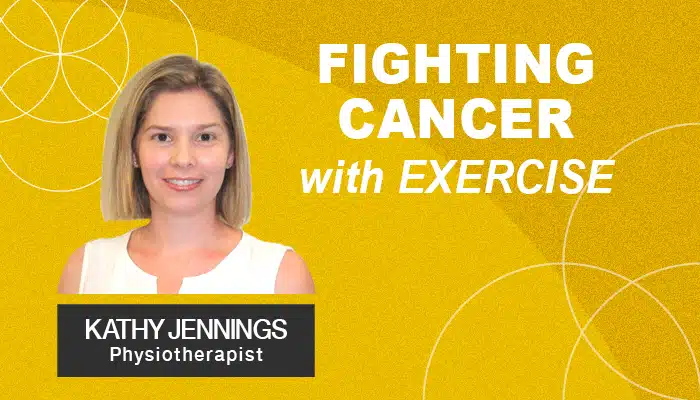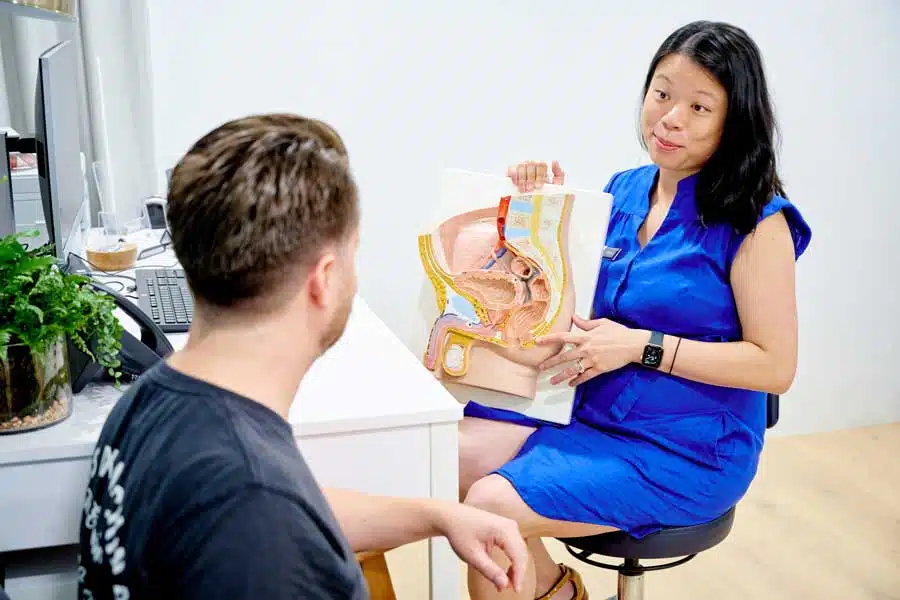We all know someone who has been touched by cancer.
In fact, every four minutes someone in Australia is diagnosed with cancer. The lastest clinical research has established that exercise provides significant benefits to people during and after cancer treatment and consequently, the latest recommendation is that ALL cancer patients should be prescribed exercise as part of their routine treatment. These guidelines include those recently diagnosed, those currently undergoing treatment (including those with advanced cancer) as well as those who have recovered from their treatment.
In fact, exercise should be prescribed as a form of medicine!
What are the benefits of exercise for cancer patients?
Cancer treatments can take a significant toll on the body resulting in many negative physical and psychological side effects such as cancer related fatigue, pain, reduced fitness, muscle weakness, bone loss and osteoporosis, difficulty undertaking daily tasks, reduced cognition as well as depression and anxiety.
Exercise has been shown to specifically help cancer patients:
- Experience fewer and less severe side effects from aggressive cancer treatments
- Minimise the physical decline caused by cancer
- Minimise cancer-related fatigue
- Relieve stress
- Increase energy levels
- Improve quality of life
In fact, research shows that cancer patients who exercise regularly can tolerate aggressive cancer treatments better, thus allowing them to more often complete their full treatment course. They also have a reduced relative risk of dying from their cancer and their cancer coming back!

How is exercise beneficial for those with Advanced cancer?
Patients with advanced cancer are often encouraged to avoid exercise, however new research suggests that a rest strategy can hasten decline and reduce survival. With an appropriately prescribed and graded exercise program by a qualified cancer rehabilitation therapist, significant physical and psychological gains can be made. These exercise interventions support independence and prevent further health complications.
When should cancer patients start exercising?
As soon as possible! Research has shown that exercise is both safe and effective when individually prescribed and supervised by a health professional such as a physiotherapist, who specialises in cancer care.
What exercises should cancer patients be doing?
It is extremely important that cancer patients avoid inactivity and return to normal activities as soon as possible.
The evidence-based guidelines recommend people with cancer be as physically active as their current ability and conditions allow. Prior to starting exercise, they should be assessed by a health professional with specific knowledge in cancer.
They should then aim to work towards:
- 150 mins of moderate intensity aerobic (Eg. Walking, jogging, cycling, swimming) exercise per week. (30 min x 5 days) and
- 2-3 sessions of resistance exercise (strengthening) sessions each week.
Pacing is extremely important for cancer patients so these recommendations should be tailored to the individual’s abilities in order to minimise the risk of complications and maximise the health benefits. They can then be appropriately monitored and progressed.
Should I stop regular exercise now that I am in remission?
No. Exercise for people in remission is extremely important. Cancer survivors have an increased risk of developing chronic diseases such as cardiovascular disease and diabetes. They also have an increased risk of their cancer recurring. However, evidence shows that exercise helps prevent these chronic diseases and a growing body of evidence suggests that exercise has a role in preventing the cancer from coming back.
Cancer rehabilitation at AJ Physio/Sydney Pelvic Clinic.
If you or a loved one are currently undergoing cancer treatment (or are due to start soon) book in to see our specialist PINC certified cancer rehabilitation therapist, Kathy Jennings, for an assessment today.
Our clinic is able to facilitate enhanced primary care plans if referred by your GP. This will help to partially subsidise initial treatment costs. Please talk to you doctor to see if you are eligible. You can read more information via http://www.health.gov.au/.
Learn more about Kathy Jennings

